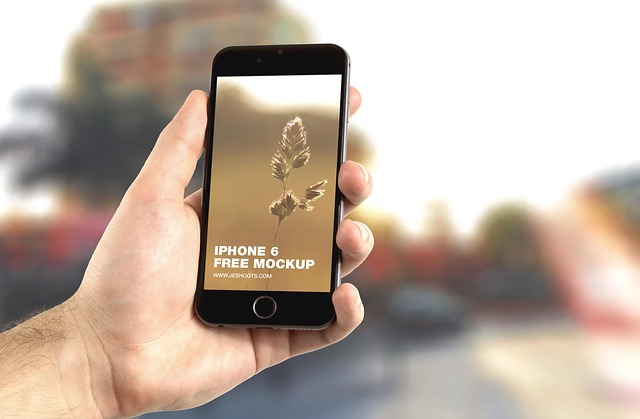In New Hampshire, "No Call Laws" protect residents from spam calls by limiting telemarketing during core hours, with exemptions for consent and non-commercial organizations. A Spam Call law firm in New Hampshire guides businesses on compliance while effective marketing, handling consent agreements, disputes, and legal representation. Residents can consult these firms for blocking unwanted calls, reporting harassment, and understanding their rights under the laws.
“In Amherst, New Hampshire, understanding No Call laws is crucial for both businesses and residents. This article serves as a comprehensive guide to navigating these regulations with key exemptions in focus. We explore who is protected, common scenarios where calls are permitted, and the vital role a spam call law firm in New Hampshire plays in ensuring compliance. Additionally, we empower readers with knowledge on handling unwanted spam calls and their associated legal rights.”
Understanding No Call Laws in New Hampshire: A Brief Overview
In New Hampshire, like many states, there are strict regulations in place to protect residents from unwanted or spam calls, known as “No Call Laws.” These laws aim to preserve personal time and privacy by restricting telemarketing activities. Under the Spam Call law firm New Hampshire, businesses and individuals making outbound telephone sales or solicitations must follow specific guidelines to ensure they’re not violating any regulations.
The state’s No Call Law generally prohibits commercial calls to residential phone numbers between the hours of 9:00 a.m. and 5:00 p.m., Monday through Friday, and 10:00 a.m. to 4:00 p.m. on Saturdays. Exceptions exist for calls made with prior written consent or certain types of non-commercial calls, such as those from political organizations or charities. Understanding these exemptions is crucial, as they allow businesses to operate within the law while still reaching their target audience effectively.
Who Is Protected Under These Regulations?
In Amherst, New Hampshire, like many places across the country, no-call laws are designed to protect residents from unwanted and intrusive phone calls, particularly those associated with telemarketing and spam calls. However, these regulations also provide exemptions that allow certain entities and situations to bypass these restrictions.
The protections under the Spam Call law firm New Hampshire typically extend to consumers who have not given explicit consent for receiving calls. This includes residents whose phone numbers are registered on the National Do Not Call Registry. Businesses and organizations that adhere to these rules ensure they are respecting individual privacy while still being able to communicate with potential customers or clients in legitimate, non-intrusive ways.
Common Exceptions to the Rule: When Calls Are Permitted
In New Hampshire, the no-call laws are designed to protect residents from unwanted telemarketing calls, but there are certain situations where these restrictions don’t apply. Understanding these exceptions is crucial for both consumers and businesses operating within the state, especially those in the legal sector who need to make legitimate calls. Common exemptions include calls made with prior express consent, which can be obtained through written or verbal agreement from the recipient.
Another permitted scenario involves calls from non-profit organizations and charities, as long as they comply with specific regulations regarding do-not-call requests. Business-to-business (B2B) communications are also largely unaffected by these laws, allowing companies to reach out to potential partners or clients without fear of violating the Spam Call law firm in New Hampshire. This ensures a healthy business environment while respecting residents’ privacy rights.
The Role of a Law Firm in Navigating these Exemptions
In Amherst, New Hampshire, like many jurisdictions, the No Call Laws are in place to protect residents from unwanted telemarketing calls and spam. However, these laws also include specific exemptions that allow certain types of communication to proceed without violating consumer rights. A skilled Spam Call law firm in New Hampshire plays a crucial role in helping individuals and businesses navigate these complexities.
These legal professionals possess in-depth knowledge of the state’s telecommunications regulations and can advise clients on when and how to invoke these exemptions. By understanding the nuances of the law, they ensure that marketing efforts comply with No Call Laws while still allowing for effective communication. A reputable Spam Call law firm can provide strategic guidance, draft tailored consent agreements, and represent clients in case of disputes, ensuring compliance and mitigating potential legal risks associated with telemarketing activities.
How to Handle Unwanted Spam Calls and Your Legal Rights
If you’re receiving unwanted spam calls in Amherst, New Hampshire, it’s essential to understand your rights and how to handle them effectively. While no-call laws are in place to protect consumers from unsolicited phone marketing, there are instances where such calls are legal. For example, if you’ve given explicit consent to receive calls or messages from a particular company or organization, they may still contact you. This includes scenarios where you’ve signed up for a service or registered your number for promotional purposes.
In cases of persistent or harassing spam calls, it’s advisable to consult a Spam Call law firm in New Hampshire that specializes in consumer protection. They can guide you on the best course of action, which may involve blocking the caller, reporting the incidents to relevant authorities, or taking legal recourse if the behavior continues. Remember, staying informed about your rights and knowing when to seek professional assistance is key to navigating the complexities of no-call laws and protecting yourself from unwanted spam calls.






